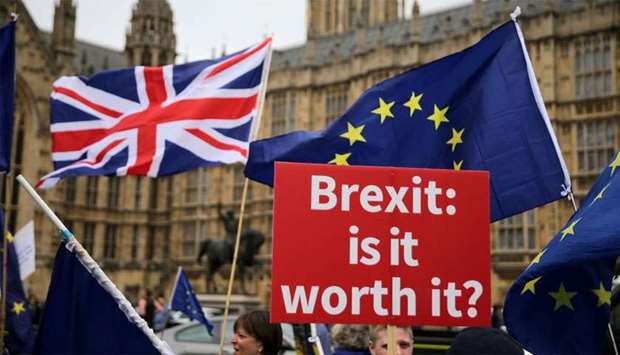Freedom of movement for European Union citizens entering Britain will end in the event of a no-deal Brexit, the British government confirmed on Monday, except for those already in the country who have applied for special status.
The ability to travel freely across the bloc is one of the key tenets of the EU and former British leader Theresa May had considered extending the right until 2021 while Brexit is sorted out.
But new Prime Minister Boris Johnson has vowed to leave without a deal on October 31 if the EU continues to refuse to renegotiate an agreement brokered with May.
The deal has failed to get through the British parliament.
"Freedom of movement as it currently stands will end on October 31 when the UK leaves the EU, and after Brexit the government will introduce a new, fairer immigration system that prioritises skills and what people can contribute to the UK, rather than where they come from," the interior ministry said in a statement.
"EU citizens and their families still have until at least December 2020 to apply to the EU Settlement Scheme and one million people have already been granted status."
Around 3.5mn EU citizens already live in Britain, and it is unclear what will happen to those who do not register for the scheme by the end of October, dpa reported.
Meanwhile, British opposition leader Jeremy Corbyn called for a general election to try to end the Brexit impasse, as
Boris Johnson came under pressure to recall parliament.
Corbyn said his Labour Party would offer a second referendum on the 2016 decision to quit the European Union if it wins any election.
Conservative leader Johnson does not want to call an election but may be forced to if he loses the confidence of parliament.
"Labour believes the decision on how to solve the Brexit crisis must go back to the people," Corbyn was quoted as saying by Britain's Press Association.

